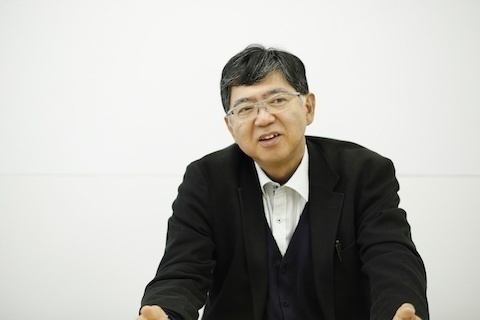2020.04.01
Interview with International Section Director and Policy Evaluation Unit Director | Criminology Research Center, Ryukoku University
The Need for Science-Based Evidence

Prof. Koichi HAMAI
Prof. Koichi HAMAI
Professor, Faculty of Law, Ryukoku University; Director, International Section; Director, Policy Evaluation Unit, Criminology Research Center
[Profile]:
Previously worked in correctional institutions as an employee of Japan’s Ministry of Justice, has held researcher posts at the Research and Training Institute of the Ministry of Justice and the United Nations Interregional Crime and Justice Research Institute, and is well versed in domestic and overseas crime and criminal policy. Current criminological research is based on criminal statistics and scientific evidence.
We Need a Discussion Based on Scientific Evidence
I saw the need for scientific evidence in criminology, in discussions about crime, and in policymaking when I noticed a discrepancy between statistics on crime and the criminals I actually witnessed and the state of criminal punishment. While working for the Ministry of Justice, upon being transferred from a research institute creating Japan’s annual White Paper on Crime and studying criminal policy to the prison system, I encountered prisons full to capacity and convicted offenders held in jails. A large proportion of prison inmates had disabilities or were elderly with dementia, unable to work as a form of punishment, had no place to go after leaving prison, and displayed a high rate of recidivism. The jumping-off point for my research was having doubts over whether punishing criminals under these circumstances or toughening the law had any beneficial effect, and concerns about how this set of circumstances arose. Criminology studies in Japan have an insular and top-down structure; few people consider what kinds of people commit crime, why they commit crime, or the series of events that befall criminals after entering prison; and nobody conducts research into these matters.
My specialty is criminal statistics, and after spending time both compiling Japan’s annual White Paper on Crime and working in the prison system, upon starting research I quickly realized that an increase in arrest rates was not necessarily evidence of a deterioration in civil order. When statistics are not viewed scientifically and when anti-crime measures and criminal policies are instituted on baseless necessity, we end up going down the wrong path. In collaboration with professor Hiroshi TSUTOMI of the University of Shizuoka, a Japanese representative for the Campbell Collaboration, we set to work translating and analyzing reviews issued by the Campbell Collaboration, which is an international social science research network that produces high quality, open and policy-relevant evidence syntheses, plain language summaries and policy briefs.
The Campbell Collaboration
The Campbell Collaboration issues systematic reviews of (science-based) evidence presented as meta-analyses of data collected in experiments conducted in various countries by the same methods and criteria. These reviews are accessible on the Campbell Collaboration website and address the needs of people who require access to the best available evidence in fields of education, criminal justice, crime, and social welfare. When new evidence comes to light, the reviews are also promptly updated and revised. At present, these reviews appear in English on the web site in the form of a scientific article and an abstract summarizing the article, and our work mainly involves translating abstracts and reviews into Japanese.
Legal scholars, lawyers, and other legal experts in Japan rarely discuss matters based on scientific or statistical evidence. I would like people in Japan to discover and recognize the significance of the Campbell Collaboration as a means of sharing systematic reviews, and to make high-quality evidence available for policy evaluation and decision-makers in Japan.
Using my Unique Vantage Point to Examine Criminology on a Scientific Basis
My unique vantage point is based on time spent working for the Ministry of Justice and consists of first-hand experience in all correctional facilities spanning juvenile and adult offenders. I am also familiar with the places where statistics are created. Being experienced in the production of Japan’s annual White Paper on Crime as an editor, I can also compile and analyze all types of statistics collected in the field. Furthermore, having also been temporarily assigned to the United Nations agency that gathers and analyzes statistics from every country, I have a comprehensive understanding of the situation concerning crime in Japan and how Japanese criminal policy is viewed by the rest of the world.
Unlike America and Europe, criminology departments do not exist in Japan, hence few people in Japan understand the significance of discussions on criminology, data that can be used in policymaking, or are capable of analyzing the significance of how these data are created or figures derived from them. By building a foundation for a statistics-based scientific examination and discussion of crime, I hope that the Criminology Research Center will become both a hub for criminology research in Japan and a useful ally to the world.
